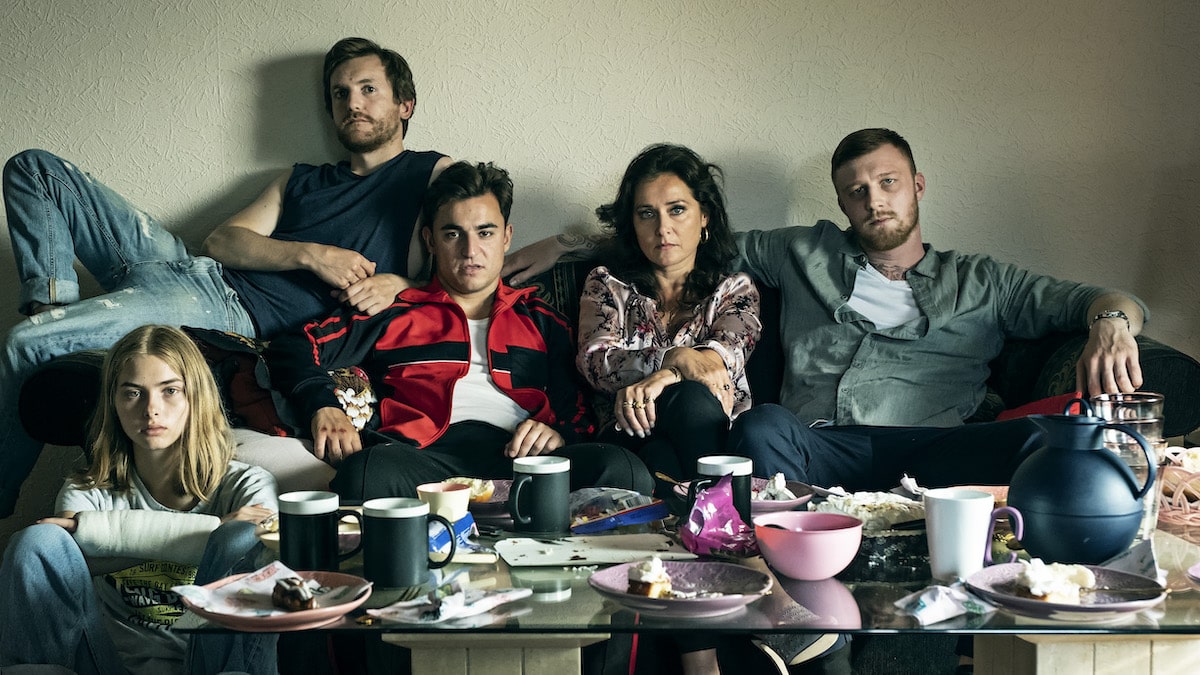Following the death of her alcoholic mother in a car accident, 17-year-old Ida (Sandra Guldberg Kampp) is sent by social services to live with her Aunt. Ida barely knows her Aunt Bodil (played by Danish acting royalty Sidse Babett Knudsen) and her three cousins, Jonas, Mads, and David, but she is welcomed into the family with open arms. At the worst time in her life, Bodil provides a loving home and embraces Ida into the fold.
Bodil is a glamorous matriarch, with extremely close (borderline inappropriate) relationships with her three grown up sons. Ida learns that her Aunt owns a nightclub, but this is merely a front for her true profession as a ruthless loan shark. Jonas, Mads, and David are her enforcers, collecting debts and dishing out beatings to those who don’t pay on time.
Ida is encouraged to work with her cousins. She brings a different dynamic to the job. When Jonas wants to put the fear on one his debtors, he picks up the man’s daughter from outside school to drive her home. Having Ida in the car provides a level of comfort and reassurance to the girl that she is safe. When Ida asks Jonas afterwards “what if he still doesn’t have the money?” his chilling reply is, “once I speak to the children, they usually do.”
The question becomes, does Ida really want to go along with this? Is the safety and security of Bodil’s home worth what she’ll have to do to stay here? Kampp’s performance brings a chilling ambiguity, as she takes in the reality of her new life with a detached coolness. The push and pull of family is strong. Loyalty is expected. When a routine collection goes horribly wrong, Ida finds herself caught between her new family on one side, and social services and the police on the other.
Jeanette Nordahl’s impressive feature debut has inevitably drawn comparison with David Michôd’s Animal Kingdom, but for me it reminded me more of another Scandinavian film, Isabella Eklöf’s icy thriller Holiday, in its stark mix of organised crime and off-kilter domesticity. Also, like Holiday, it never goes where you think it will, constantly surprising at every turn.
Visually, Nordahl captures her subject with a matter-of-fact directness, with occasional impressionistic flourishes. However, the events as they unfold are anything but matter-of-fact, existing instead in the grey areas between the lines. We’re never really sure what is going on with Ida. She hardly speaks, which isn’t surprising considering the trauma she has suffered, and her implacable cold gaze gives nothing away. It’s a bold approach for a protagonist we spend practically the entire film with, but it works, and leads to a wonderfully unpredictable final act.
With exceptional performances across the board, this tightly wound thriller announces Nordahl as an exciting new talent. The film has done well so far on the festival circuit earning terrific reviews, and makes it UK premiere as part of the Glasgow Film Festival. I suspect that considering the popularity of Scandi-noir drama in the English-speaking world, this could well be a breakout hit, and definitely a star-making vehicle for the terrific Sandra Guldberg Kampp.
[rwp-reviewer-rating-stars id=”0″]


